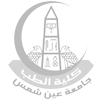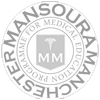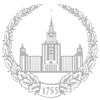The subjects of first three medical years studying [preclinical years] . We’re providing the best sources & materials for each subjects you can study clearly from it. Learning in the preclinical years occurs in the lecture hall, with professors delivering the details of how both the healthy and the diseased body functions. Guest lecturers, medical center, and community physicians, and specialists in research on current topics provide first-hand knowledge to supplement the instruction. Patients occasionally present to the class, giving a unique perspective.
Students learn hands-on in the laboratory settings, from dissecting the intricacies of the human body in gross anatomy lab, to viewing normal microscope slides in histology and diseased specimens in pathology. Lab studies are conducted in pairs or small groups, which encourages active learning and team work. Small groups are common in the classroom setting. Numerous courses assign case studies and projects designed for group learning. The application of the different teaching styles is specifically designed to maximize learning and prepare students to become critical thinkers.
|
||||||||||||||||||||||||||||
Pre-Clinical Medical Years: What I Wish I Knew ?
As a preclinical medic, the idea of clinical medicine may seem daunting. How does one cope with the transition from lectures, dissections, tutorials, small group teaching and PBLs to spending your days on the wards and interacting with patients? As a preclinical medic myself, I often worry about how do I know what I need to know whilst on the wards? How much do I need to know? How will I make notes and find the time to commit what I have learnt to memory? Fortunately,I had the pleasure of interviewing Mitchell Osei-Junior iBSc (Hons), a medical student at King’s College London with dreams of becoming a Child and Adolescent Psychiatrist/Psychotherapist. Having recently acquired a diplomas in Applied (STEM) Mathematics & level 3 Child Psychology, he is also currently studying for level 4 diplomas in Adolescent and Child Psychology as Mitchell’s main interests lie in psychosocial and developmental psychology.
What is the difference between preclinical and clinical years at medical school ?
The main difference between preclinical years and clinical years is the focus of the year.In preclinicals, the emphasis is on you getting the 'basics' of medicine in terms of Anatomy, Physiology and other various human sciences that will form as foundations for clinical years.However, in your clinical years, the emphasis is on 3 main components:
- Knowledge (applying your foundations for understanding clinical conditions)
- Communication (being able to convert medical jargon to lay language whilst also building rapport)
- Practical skills (Because OSCEs become an important thing)
Apply for Bachelor's Degree
In all medical fields; Medicine, Dentistry & Pharmacy
It takes about 1-2 months to be accepted
Apply for Matser's Degree
Available in Russian or English languages
Takes from 2-3 years according to your speciality
Transfer to our university
Only internal transfer is available from other Russian universities
External transfer from outside Russia not available .
Apply for preparation year
It takes a year learning Russian language & prepare you in Biology & chemistry by Russian language
Apply for faculty of General Medicine
You can choose the language of study, Russian, English or French
Lasts for 6 years
Apply for Faculty of dentistry
You can choose the language of study, Russian, English or French
Lasts for 5 years
Apply for faculty of pharmacy
You can choose the language of study, Russian, English or French
Lasts for 5 years







